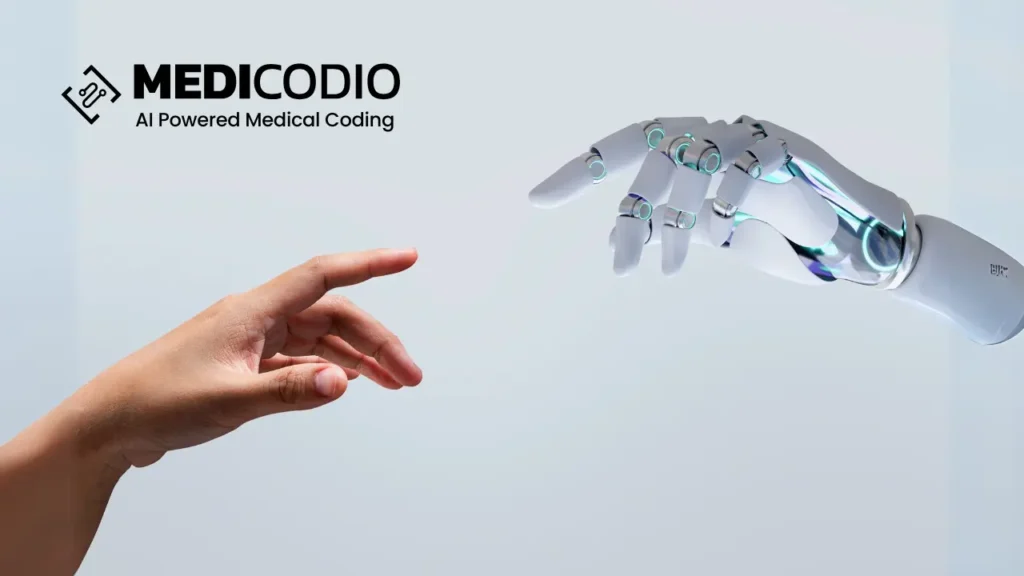Introduction
As artificial intelligence continues to reshape healthcare operations, medical coding is undergoing a transformation. Automated coding platforms are becoming the norm, reducing manual effort and increasing efficiency. However, rather than replacing medical coders, AI is creating new opportunities for those who are prepared. The key lies in AI training for medical coders, equipping professionals with the knowledge and adaptability required in an evolving ecosystem.
Healthcare organizations and coders must now look ahead—embracing new tools and developing AI literacy to stay relevant and competitive in the digital age.
Why AI is Changing Medical Coding Forever
The traditional manual approach to medical coding is being disrupted by technologies like:
- Machine Learning algorithms that learn from coding patterns
- Automated code suggestion engines
- Real-time coding validation and compliance checks
These technologies streamline processes, reduce errors, and significantly boost coder productivity. As these tools become widespread, coders will need to shift from data entry roles to more analytical, oversight-driven functions.
Essential Skills for Coders in an AI-Driven Environment
To remain valuable in this changing landscape, coders must cultivate a blend of traditional and tech-forward competencies. Here is what AI training for medical coders should include:
✅ 1. Data Literacy
Understanding how data flows through EHR systems, how AI models use clinical data, and how to validate AI outputs is crucial.
✅ 2. Analytical Thinking
Coders must analyze AI-generated codes, resolve discrepancies, and ensure compliance with payer rules and documentation standards.
✅ 3. Technical Familiarity
Basic knowledge of how AI and NLP work—especially in tools like Medicodio —helps coders trust and optimize the systems they use.
✅ 4. Coding Audits and Quality Control
Coders should shift into more QA roles—spot-checking AI outputs and identifying trends in coding errors or documentation gaps.
✅ 5. Adaptability
The ability to learn new platforms and adapt to continuous updates in AI logic, payer requirements, and compliance standards is now non-negotiable.
What AI Cannot Do—And Why Coders Still Matter
AI can handle routine and repetitive coding tasks efficiently. But it lacks clinical judgment, ethical considerations, and the ability to navigate unclear or contradictory documentation. Human coders remain essential for:
- Interpreting complex medical cases
- Validating code specificity based on context
- Communicating with providers about documentation improvements
- Ensuring coding decisions align with clinical intent
Rather than eliminating jobs, AI is reshaping them, creating hybrid coder-analyst roles that blend domain expertise with AI-enabled oversight.

Medicodio: Empowering Coders with Smart AI Tools
Medicodio is at the forefront of AI-based medical coding solutions, but its mission goes beyond automation. It is designed to enhance coder workflows, not replace them. AI training for medical coders using Medicodio benefit from:
- Real-time code suggestions using NLP
- Alerts for missing documentation
- Seamless EHR integration
- Customizable workflows for different specialties
- Insight dashboards for performance improvement
MediCodio’s platform supports coders in transitioning to high-value tasks by automating the repetitive and error-prone aspects of traditional coding.
Training Recommendations: How to Upskill for AI Integration
If you are planning AI training for medical coders, consider the following best practices:
🎯 1. Introduce AI Basics
Offer training modules explaining how AI and NLP work in coding software.
🎯 2. Emphasize Software Proficiency
Train coders on specific tools like Medicodio, highlighting workflow integrations, auditing tools, and customization features.
🎯 3. Foster Critical Thinking
Incorporate real-world scenarios where coders must evaluate AI suggestions and make judgment calls.
🎯 4. Provide Ongoing Education
Include AI updates in regular coding workshops or CEUs (Continuing Education Units).
🎯 5. Encourage Collaboration
Facilitate knowledge-sharing between coders, IT teams, and compliance officers to build a cohesive AI implementation strategy.
FAQs About AI Training for Medical Coders
1. Do medical coders need to learn how to program AI tools?
No. Coders do not need programming skills, but they should understand how AI platforms work and how to use them effectively within their coding workflow.
2. Will AI eventually replace AI trained medical coders?
Not entirely. AI handles repetitive tasks, but human oversight is critical for complex coding decisions and compliance.
3. What topics should AI training for medical coders include?
Training should cover AI fundamentals, NLP, coding software navigation, audit review, and best practices in documentation analysis.
4. How can Medicodio help in AI training for medical coders?
Medicodio includes intuitive AI assistance and audit feedback loops, making it an excellent platform for both new and experienced coders to learn on.
5. Are there certifications available for AI medical coding?
While formal AI certifications for coders are emerging, many platforms like Medicodio provide structured learning and support to build AI competencies.
Conclusion
AI is not a threat to medical coding—it is the catalyst for its evolution. With the right AI training for medical coders, professionals can transition into more strategic roles that combine healthcare knowledge with tech-driven efficiency. Organizations that invest in upskilling their coding teams will lead the way in a healthcare system increasingly powered by automation.
👉 Schedule a demo today to see how Medicodio supports coder training and delivers AI-powered coding efficiency.




